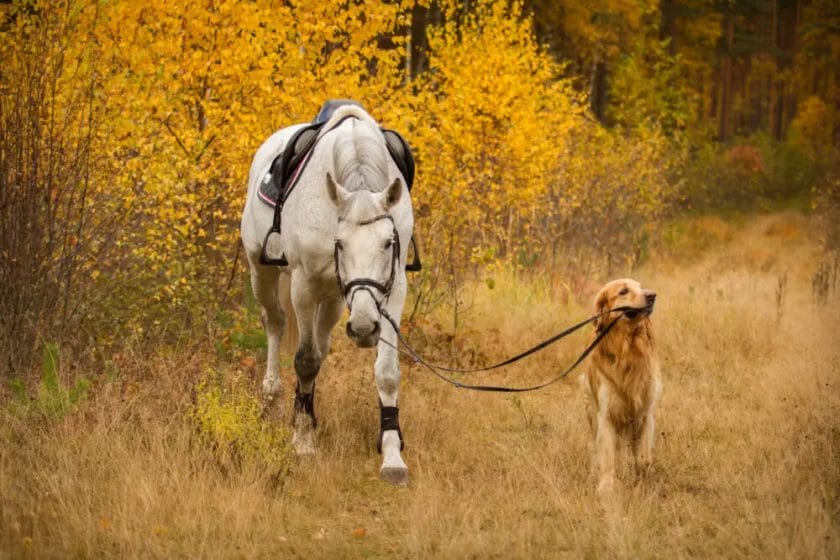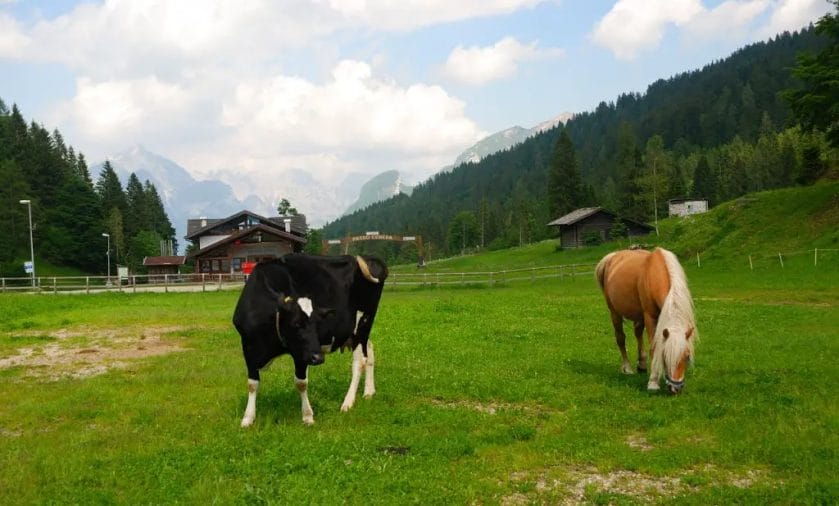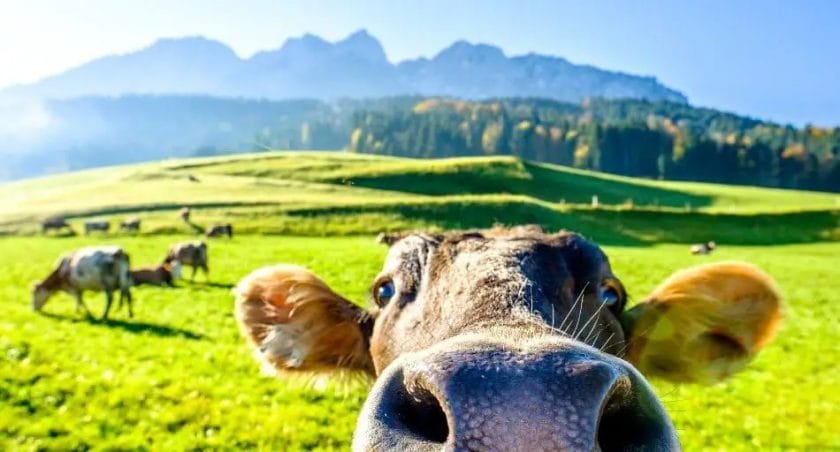Cows and horses are both intelligent animals, but their intelligence is different and specific to their needs and environments.
Cows have excellent memories and are highly social animals. They form strong bonds with their herd members and display complex social behaviors.
Horses, on the other hand, are known for their ability to learn and respond to training cues. They have heightened senses and are adept at reading human body language.
Comparing the intelligence of cows and horses is subjective, as each species has unique cognitive abilities that enable them to thrive in their respective habitats.
Ultimately, the intelligence of cows and horses should be appreciated and respected for the remarkable ways in which they adapt and interact with their surroundings.

Understanding the Cognitive Abilities of Horses: A Comparative Analysis
Horses have long been recognized for their strength, beauty, and companionship. But beyond their physical attributes, horses possess remarkable cognitive abilities that have fascinated scientists and equestrians alike. In this section, we will explore the cognitive abilities of horses and compare them to other animals, shedding light on their intelligence and capacity for learning.
1. Perception and Sensory Abilities
Horses have exceptional sensory abilities that allow them to perceive their environment in unique ways. Their keen sense of hearing enables them to detect sounds from long distances, making them highly alert to potential dangers. Additionally, horses have a wide field of vision, with eyes positioned on the sides of their head, allowing them to have nearly 360-degree vision. This panoramic view helps them spot predators or other threats.
Moreover, the olfactory capabilities of horses are impressive. They possess an acute sense of smell, which enables them to identify familiar scents and detect subtle changes in their surroundings. This sensory acuity helps them recognize and bond with humans and other animals.
2. Learning and Memory
Horses exhibit remarkable learning capabilities and have great memory retention. They are quick to learn through a combination of observation, imitation, and associative learning. For example, if a horse observes another horse successfully completing a task, it can quickly learn and replicate the behavior.
Horses also demonstrate an ability to remember past experiences and navigate through familiar environments. They have excellent spatial memory, allowing them to recall specific routes or locations, which proves useful during trail rides or competitions.
3. Problem Solving and Adaptability
When faced with challenges, horses exhibit problem-solving skills and adaptability. They can analyze situations and find innovative ways to overcome obstacles. For instance, if a gate is blocking their path, horses often try different strategies to open it, such as nudging, pushing, or lifting the latch using their mouth or hoof.
Furthermore, horses can adapt to changing circumstances and adjust their behavior accordingly. They demonstrate flexibility in learning new skills and adapting to different riders or handlers. This adaptability showcases their cognitive flexibility and ability to respond to varying cues and commands.
4. Social Intelligence
Horses are highly social animals and possess a sophisticated understanding of social dynamics within their herd. They communicate through a complex system of body language, vocalizations, and facial expressions. This social intelligence allows them to form strong bonds with other horses and establish hierarchies within the group.
Additionally, horses can recognize and respond to human emotions. They can pick up on subtle cues and show empathy towards their human counterparts. This ability to understand and connect with humans is one of the reasons why horses are widely used in therapeutic and emotional support programs.
5. Tool Use and Problem Solving
While horses may not engage in tool use in the same way as primates or birds, they can still exhibit problem-solving behaviors that involve manipulating objects in their environment. Horses have been observed using their hooves or mouth to interact with objects, such as opening latches, kicking balls, or even retrieving items.
Furthermore, horses possess a remarkable ability to learn and navigate complex obstacle courses, showcasing their problem-solving skills and spatial awareness.
Summary
In summary, horses possess impressive cognitive abilities that contribute to their intelligence and adaptability. Their perceptual and sensory abilities, learning and memory, problem-solving skills, social intelligence, and even rudimentary tool use demonstrate their complex cognitive capacities. Understanding the cognitive abilities of horses not only deepens our appreciation for these magnificent creatures but also enhances our ability to train and interact with them in a more meaningful way.

Factors Influencing Animal Intelligence: Comparing Cows and Horses
Animal intelligence is a fascinating subject, and researchers have long been trying to understand the factors that influence it. In this section, we will explore the factors that contribute to animal intelligence by comparing two popular domesticated animals – cows and horses.
1. Brain Size
One of the primary factors that determines animal intelligence is the size of their brain. Generally, animals with larger brains tend to exhibit higher levels of intelligence. When comparing cows and horses, horses have a relatively larger brain size compared to cows. This size difference can have a significant impact on their cognitive abilities.
2. Social Behaviors
Social interactions play a crucial role in animal intelligence. Both cows and horses are social animals and rely on their ability to communicate and cooperate with others in their herd. Horses, however, have a more complex social structure compared to cows. They form strong social bonds and demonstrate a higher level of social intelligence.
3. Problem-Solving Skills
The ability to solve problems and adapt to new situations is another factor that determines animal intelligence. Horses have been known to display superior problem-solving skills compared to cows. They can navigate complex environments, remember routes, and find innovative solutions to challenges they encounter.
4. Learning Abilities
The capacity to learn, retain information, and apply it in different contexts is an essential aspect of animal intelligence. Horses are known for their quick learning abilities and high retention of learned tasks. Cows, on the other hand, may take longer to learn new skills and may require more repetition to retain the information.
5. Memory
The ability to remember past experiences and use that knowledge to make decisions is a key indicator of animal intelligence. Horses have demonstrated excellent memory retention and are known to recognize familiar individuals, remember learned tasks, and recall specific routes or locations. Cows also have a good memory but may not exhibit the same level of recall as horses.
6. Sensory Abilities
The sensory abilities of animals can greatly impact their intelligence. Both cows and horses have well-developed senses, but horses have a more acute sense of hearing and smell, which can contribute to their ability to navigate and respond to their environment more effectively.
7. Environmental Stimulation
The level of environmental stimulation an animal receives can significantly influence their cognitive development. Horses are often exposed to more varied and mentally stimulating environments compared to cows. This exposure to new experiences and challenges can enhance their intelligence and problem-solving abilities.
8. Domestication and Training
The impact of domestication and training on animal intelligence cannot be overlooked. Both horses and cows have been domesticated for centuries, but horses have historically been bred and trained for various tasks, including riding, racing, and performing intricate maneuvers. This training can enhance their cognitive abilities. Cows, on the other hand, have primarily been domesticated for agricultural purposes, which may not require the same level of cognitive skills.
Summary
While both cows and horses exhibit intelligence in their own ways, horses tend to have a slight edge in terms of problem-solving skills, learning abilities, memory, and social intelligence. However, it’s important to note that intelligence can vary within individual animals, and factors such as genetics, individual experiences, and training can also play a significant role.

Problem-Solving Skills: Are Cows or Horses More Adapted?
Problem-solving skills are essential for both cows and horses to navigate various challenges they encounter in their environments. However, when comparing their adaptability and problem-solving abilities, there are key differences between the two animals.
1. Cows
Cows are highly adaptable and intelligent animals. They have developed problem-solving skills to overcome specific challenges they face in their natural habitats. One example of their problem-solving abilities is their ability to find food in different environments. Cows have the capability to recognize edible plants and avoid toxic ones.
Additionally, cows exhibit problem-solving skills when faced with obstacles such as fences or gates. They can learn to open gates by pushing or lifting them, allowing them to access new grazing areas or water sources. Cows also have the ability to assess their surroundings and find escape routes when faced with potential danger.
Furthermore, cows display social problem-solving skills within their herd. They communicate and collaborate with other cows to protect their young or fend off predators. This cooperative behavior showcases their ability to analyze situations and work together to find solutions.
2. Horses
Horses, like cows, possess problem-solving abilities that help them navigate their environments. However, horses have certain adaptations that make them particularly adept at solving certain challenges.
One of the notable problem-solving skills of horses is their spatial awareness. They have an exceptional sense of direction, allowing them to navigate complex terrains and remember routes even after extensive periods of time. This ability proves beneficial when horses need to find their way back to familiar grazing areas or water sources.
Horses also display problem-solving skills when it comes to obstacle negotiation. They can assess the height and width of a hurdle and adjust their stride accordingly to successfully overcome it. This adaptability allows them to confidently navigate various terrains and overcome barriers in their path.
In addition, horses showcase problem-solving skills in social situations. They have a keen understanding of herd dynamics and can accurately interpret the body language of other horses. This helps them avoid conflicts within the herd and maintain harmonious relationships.
Summary
Both cows and horses possess problem-solving skills that enable them to navigate their environments effectively. Cows demonstrate intelligence and adaptability when it comes to finding food, overcoming obstacles, and collaborating within their herd. On the other hand, horses exhibit spatial awareness, obstacle negotiation, and social problem-solving skills that equip them to overcome challenges specific to their habitats.
While both animals have their strengths in problem-solving, the contexts in which they excel may differ. It is important to acknowledge and appreciate the unique adaptations and problem-solving abilities exhibited by cows and horses in their respective environments.
The Role of Instinct and Training in Assessing Animal Intelligence
Assessing the intelligence of animals has long been a topic of interest for researchers and animal enthusiasts alike. Understanding the cognitive abilities of different species can provide valuable insights into their behavior, problem-solving skills, and overall adaptability. When evaluating animal intelligence, two key factors come into play: instinct and training.
1. Instinct
Instinct refers to an innate behavior or response that is present in animals from birth. It is not learned or acquired through experience but is instead a result of evolution and natural selection. Animals rely on their instincts to perform certain tasks or behaviors that are essential for their survival and reproduction.
When it comes to assessing animal intelligence, instinct plays a significant role. Many animals possess instinctual behaviors that showcase their abilities to navigate their environment, find food, avoid predators, and communicate with others of their species. These innate behaviors can provide valuable insights into the cognitive capabilities of animals.
For example, migratory birds display an incredible ability to navigate over long distances using celestial cues and magnetic fields. This instinctual behavior demonstrates their intelligence in spatial awareness and navigation. Similarly, predator avoidance behaviors in prey animals highlight their ability to recognize and respond to potential threats.
2. Training
While instinct provides a foundation for animal intelligence, training plays a crucial role in further developing and refining cognitive abilities. Training involves deliberate and structured learning experiences that enable animals to acquire new skills or behaviors through conditioning and reinforcement.
Through training, animals can learn complex tasks, problem-solving strategies, and even communication with humans. This ability to learn and adapt through training provides further evidence of their intelligence and cognitive flexibility.
One example of training’s impact on animal intelligence is seen in working dogs. Breeds such as border collies and German shepherds are known for their exceptional intelligence and trainability. These dogs undergo extensive training to perform tasks such as herding livestock, search and rescue operations, and even assisting individuals with disabilities. Their ability to learn and execute these complex tasks showcases their high level of intelligence.
Combining Instinct and Training
When assessing animal intelligence, it is important to consider both instinct and training as interconnected factors. Instinct serves as the foundation for animal behavior and provides valuable insights into their innate cognitive abilities. However, training allows animals to go beyond their instinctual behaviors and acquire new skills or adapt to novel situations.
Researchers often design experiments and tasks that take into account an animal’s instinctual behaviors while also providing opportunities for learning and problem-solving. This approach helps evaluate an animal’s intelligence by challenging them to use both their innate abilities and the skills they have acquired through training.
In summary, assessing animal intelligence involves considering the roles of both instinct and training. Instinctual behaviors provide insights into an animal’s innate cognitive abilities, while training allows animals to further develop and refine their skills. By understanding these factors, researchers can gain a deeper understanding of the cognitive capabilities of different animal species.
FAQs
Are cows smarter than horses?
There is no definitive answer to this question as intelligence can vary among individuals within a species. However, both cows and horses are intelligent animals in their own ways, with different strengths and abilities.
Conclusion
In conclusion, when it comes to comparing the intelligence of cows and horses, it is difficult to determine a clear winner. Both animals possess their own unique set of skills and abilities. While horses are often regarded for their quick learning and problem-solving abilities, cows are highly adaptable and display strong social intelligence. It is important to note that intelligence varies within individuals of each species, and it is unfair to make a generalization about the entire population. Ultimately, the intelligence of cows and horses should be appreciated for the distinct qualities they bring to the animal kingdom.
